Search
Search Results

Interview
Interview: The Wolf Den by Elodie Harper
In this interview, World History Encyclopedia is joined with Elodie Harper, the author of the novel The Wolf Den. Kelly (WHE): Do you want to start us off by telling us what the book is about? Elodie Harper (author): Hi, it is so nice to...
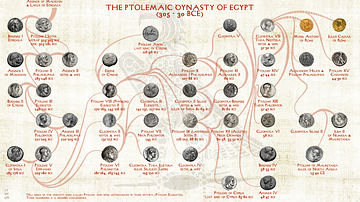
Definition
Berenike IV
Berenike IV (r. 58-55 BCE) was queen of Ptolemaic Egypt and the older sister of Cleopatra VII (r. 51-30 BCE). She ruled briefly after her father Ptolemy XII was overthrown by a popular rebellion. Berenike IV's reign ended in 55 BCE when her...

Definition
Ptolemaic Dynasty
The Ptolemaic dynasty was a Macedonian royal family that ruled Ptolemaic Egypt from 323 to 30 BCE. It was founded by Ptolemy I, a general and successor of Alexander the Great. They built Alexandria, including the Lighthouse of Alexandria...
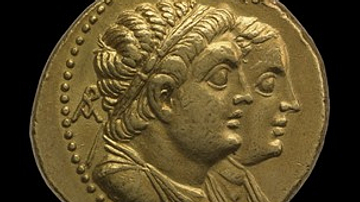
Image
Gold Octadrachm of Ptolemy II & Arsinoe II
This massive gold coin weighing approximately 27.7-8 grams was known as an octadrachm (equivalent in worth to 8 drachmae). Under the Ptolemies, mints in cities like Alexandria and Ptolemais produced ever larger denominations in gold, silver...
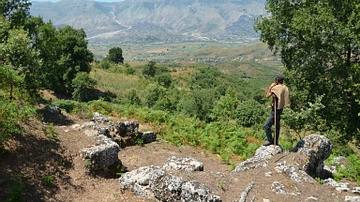
Image
Antigoneia of Epirus, Albania
Antigoneia of Epirus, Albania. The city was founded in 295 BCE by Pyrrhus, the king of the Molossians, who named it after his wife Antigone, daughter of Berenice I and step-daughter of Ptolemy I of Egypt.
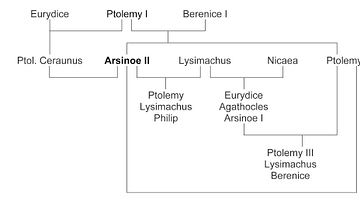
Image
Family Tree of Arsinoe II
Stemma (reduced family tree) of Arsinoe II, the daughter of Ptolemy I and Berenice I, showing her three marriages to Lysimachus, her half-brother Ptolemy Ceraunus, and her full brother Ptolemy II, who was first married to Lysimachus’ daughter...

Definition
Lighthouse of Alexandria
The Lighthouse of Alexandria was built on the island of Pharos outside the harbour of Alexandria, Egypt c. 300 - 280 BCE, during the reigns of Ptolemy I and II. With a height of over 100 metres (330 ft), the lighthouse was so impressive that...

Definition
Roman Egypt
The rich lands of Egypt became the property of Rome after the death of Cleopatra VII in 30 BCE, which spelled the end of the Ptolemaic dynasty that had ruled Egypt since the death of Alexander the Great in 323 BCE. After the murder of Gaius...

Definition
Pepper
Since antiquity, pepper has always been the most important spice in the world. It played a central role in the medicines of ancient India and China, became a critical component of Roman food, and remained central in the cuisine of medieval...
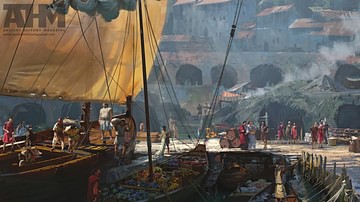
Definition
Periplus of the Erythraean Sea
The Periplus of the Erythraean Sea is an eyewitness account of ancient travel to Africa and India via the Red Sea written by an unknown Greek-speaking Egyptian author in the 1st century CE. In this detailed account, the conditions of the...